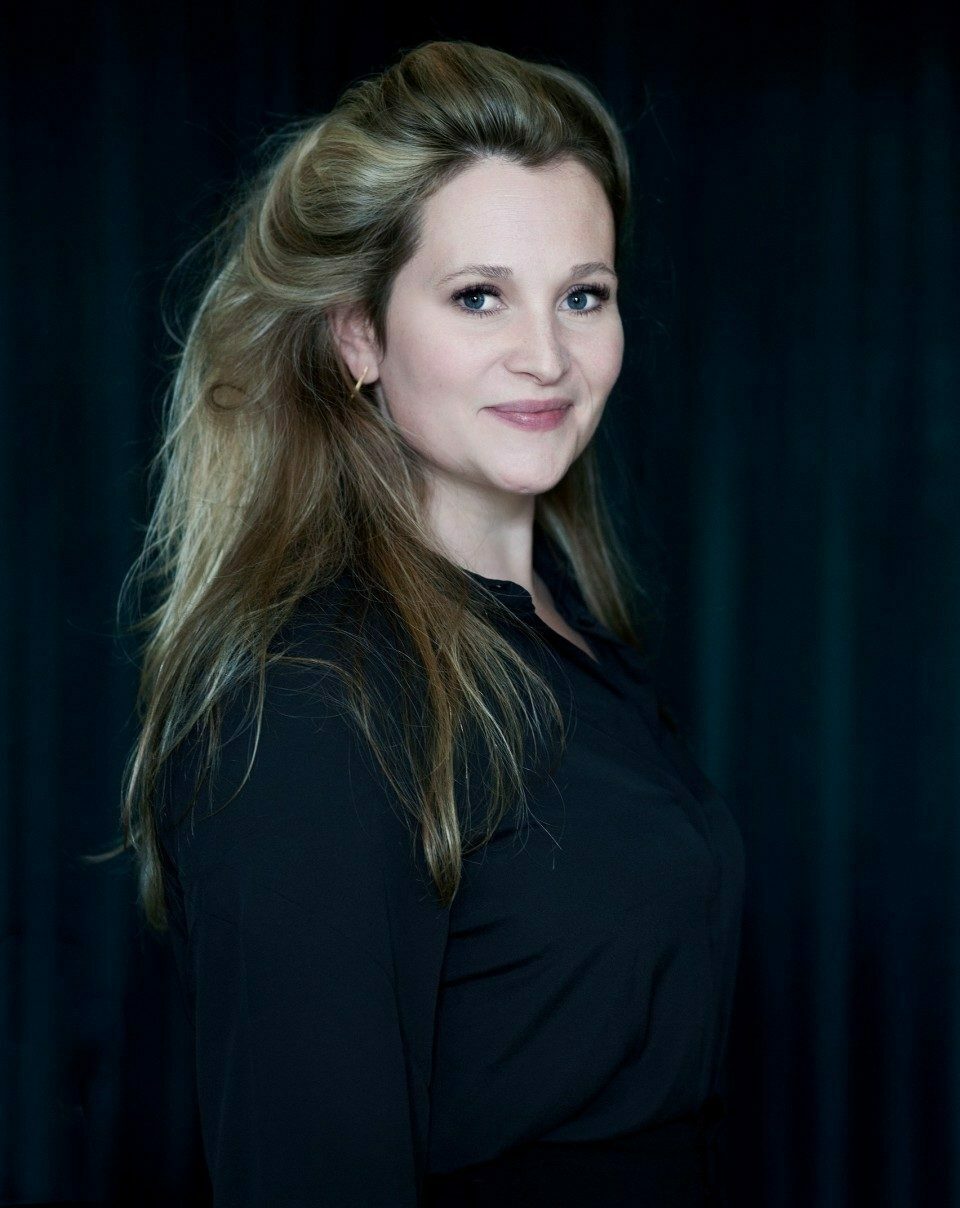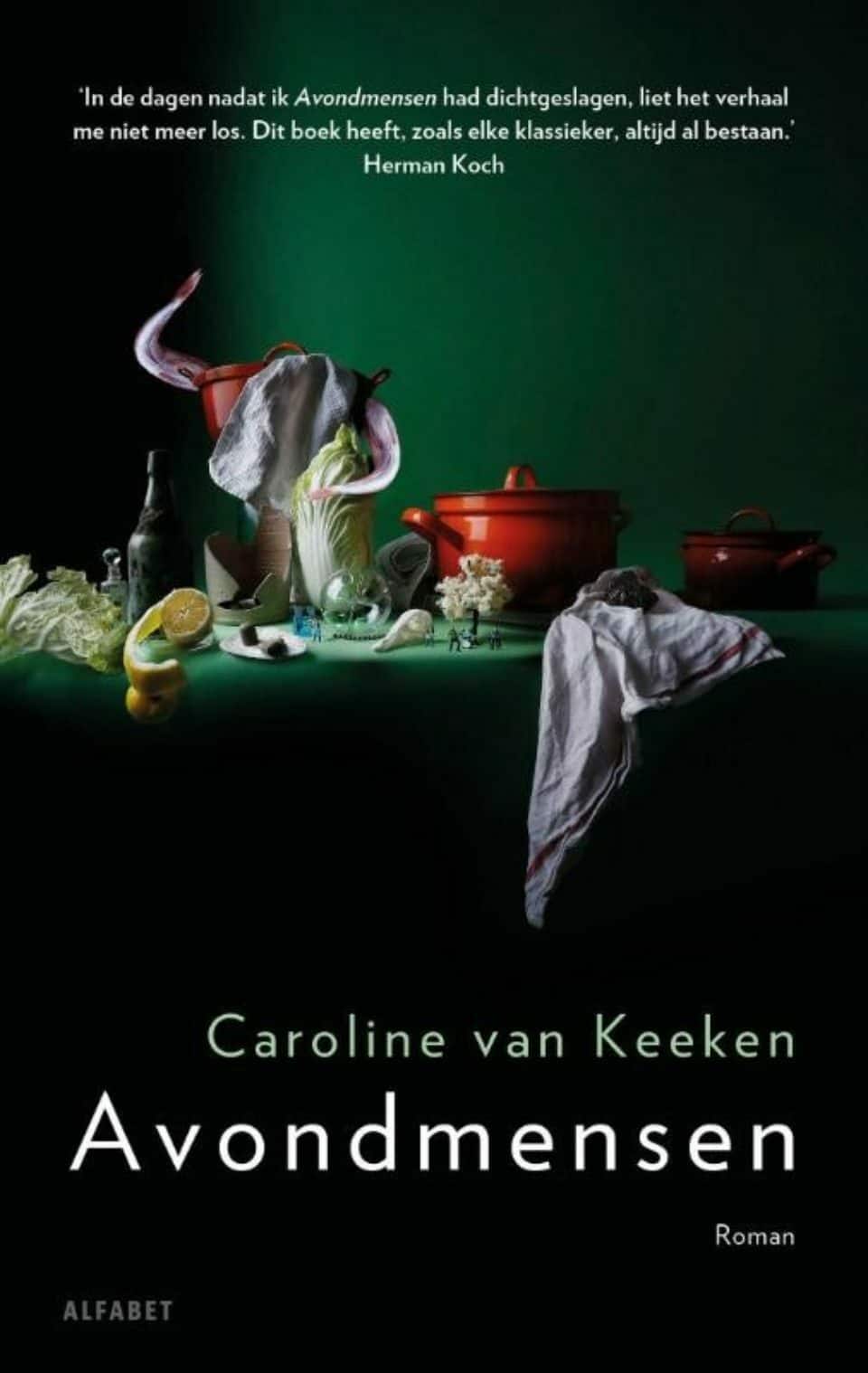‘Avondmensen’ by Caroline van Keeken: Life on Pause
In her debut novel Avondmensen (Evening People) Caroline van Keeken subtly sketches a portrait of an unhappy, dysfunctional family. Much remains unsaid, and this slowly drives them apart.
“All happy families are alike; every unhappy family is unhappy in its own way,” is how Anna Karenina begins, and ever since whole libraries have been written about all that unhappiness borne so often in silence.
 Caroline van Keeken
Caroline van Keeken© Fjodor Buis
Who can say whether the author Dutch Caroline van Keeken (b. 1988) felt inspired by Tolstoy, but her debut novel Avondmensen (Evening People) is original in its take on the entanglements and relationships within one such unhappy family.
The narrative perspective constantly switches between Simon and Alice. Simon is Alice’s father; we meet him sitting alone in couples therapy in an attempt to save his faltering marriage. That he is alone even with the therapist does not really bode so well for the future.
His wife Helen still lives in their house, but has retreated to the attic, temporarily off-limits to her husband. What goes on up there remains hidden in a haze of incense; all we know is that Helen is close friends with a medium named Maria.
Distance
Alice is the eldest. She’s living in halls and is secretly having an affair with her supervisor. But she still regularly returns home, where her younger sister Noor still lives. Recently her brother Boris moved back there, too, to escape the dampness and mould at his house. He has a lot going on, he has a bad temper and suffers from compulsive behaviour. Even when he’s back, he systematically takes note of humidity levels, he’s afraid that moisture problems are giving him cancer.
Noor bluntly calls her brother a psychopath; she is the sober voice of the quintet. She believes that her parents do not intervene forcefully enough, and sometimes accuses her sister of the same thing. Helen tries to cover everything with the cloak of love and denies that there could be anything wrong with her son, he is just a special boy. Together with Maria she tries to guide him energetically, then surely everything will be right again.
Simple but poignant sentences that come at just the right time: there are many of those in this book
As the first-born, Alice occasionally tries to mediate to keep the peace, but she is still mostly preoccupied with her own troubles, to do with love and her thesis.
And father Simon, well. Simon is a good but somewhat morose and indecisive man, absorbed in his own thoughts, as if he does not fully experience life. Often things pass him by; of a trip to Paris with Helen when they were young and in love, he barely remembers anything. It could indicate mild depression, although it is never expressed so explicitly.
Daughter Alice says of him, “My father has the saddest shoulders I’ve ever seen.” It’s one of those simple but poignant phrases that comes at just the right time, and there are many of those in this book.
Van Keeken pays great attention to her character’s inner world of emotions
When Simon looks in the mirror, he says he sees a loser. A man who doesn’t dare say to his wife: he is my son, too. And so does not dare or cannot intervene. The most enterprising thing he does is redecorate the basement, taking as his inspiration the brothel-like interior of a Parisian restaurant, the only detail from the trip with Helen that he does remember. By reconstructing that restaurant, he hopes to get closer to his wife again, but in the basement, of course, he is further from her than ever.
Centrifugal forces
Avondmensen
(Evening People) is full of symbolism, and so we learn about the curious dynamics within this unhappy family. It seems as if, despite all their attempts at connection, the members live increasingly side by side and further apart, as if all normal family contact is slowly seeping away. In the long run, within this frame, everyone is lonely.
Via some hints, we do get an idea of the cause of all the problems, with Boris and with Helen, but that is not the point really. This book is about the tensions and relationships, about the centrifugal forces that dominate a family. As if life is a trap that everyone has fallen into, dreaming of a different existence. A life in pause mode.

Van Keeken describes this subtly, with touches of humour here and there. She pays great attention to her character’s inner world of emotions, thus further reinforcing the distance between their actual lives and the one they had wanted. The general atmosphere is often oppressive, at times reminiscent of the feel of a novella, where the evil outside world does not intrude. The inner world of an unhappy family like this one is quite oppressive enough.
Excerpt of ‘Avondmensen’, as translated by Elisabeth Salverda
For his fourteenth birthday, he asked for a leaf blower. I laughingly told Helen. A leaf blower? She asked. I misinterpreted her look, I now know. It was not disdain, not disapproval; she was concerned. It is, she said softly, as if he just doesn’t feel it.
Doesn’t feel what? I asked. Too quick, too biased, too ready to attack.
Like he doesn’t sense how he… She shook her head, told me to leave it.
Like he doesn’t sense how to act normal? I asked. How he should blend in with the crowd? How to fit in? So what? I said I thought Boris did sense it, that of course he understood, he just chose to do things differently, and that that was only admirable.
Leave it, said Helen.
I looked at her closed face, searched for a crack in the smooth, neutral mask. Leaving it irked me. I wasn’t allowed to interfere with Boris, Boris was hers.
I found a leaf blower in a hardware shop out beyond the ring road, in an aisle of discounted gardening supplies. With Alice, on the morning of Boris’s birthday I drove to the park. We filled five huge bin bags with leaves for her big brother, crammed them into the car. He was ecstatic, that boy. All afternoon Helen and I watched from the window as Boris blew a mountain of leaves from one side of the garden to the other. It was as if he were singing something, or saying something. Sometimes he would look up, raise a hand to us, and I would wave back. Only when Helen sniffled did I realise that she had been crying the whole time. But he loves it, I said, he is extremely happy with his present. I put an arm around her shoulders, pulled her in close. She wriggled free, sobbing that that was precisely the problem. That afternoon I saw it; Boris looked like Helen’s father. The same curve in his back, the same focused, obsession-bordering gaze. She had to have seen it, too.
Caroline van Keeken, Avondmensen, Alfabet Uitgevers, 2023, 224 pages












